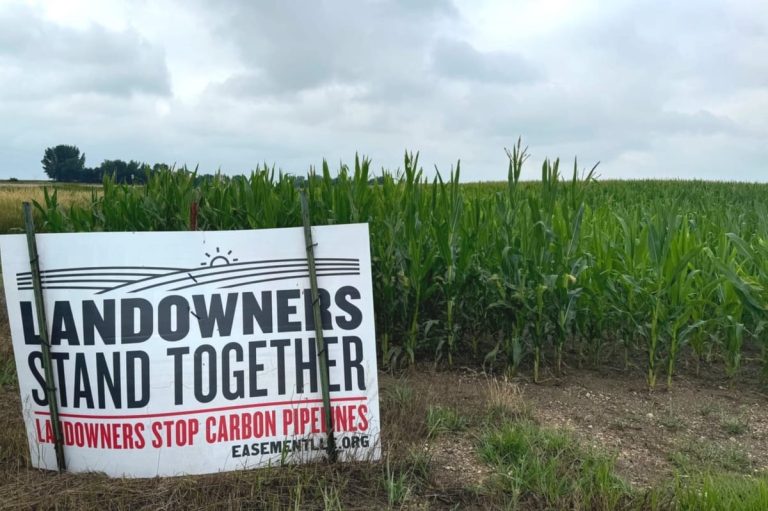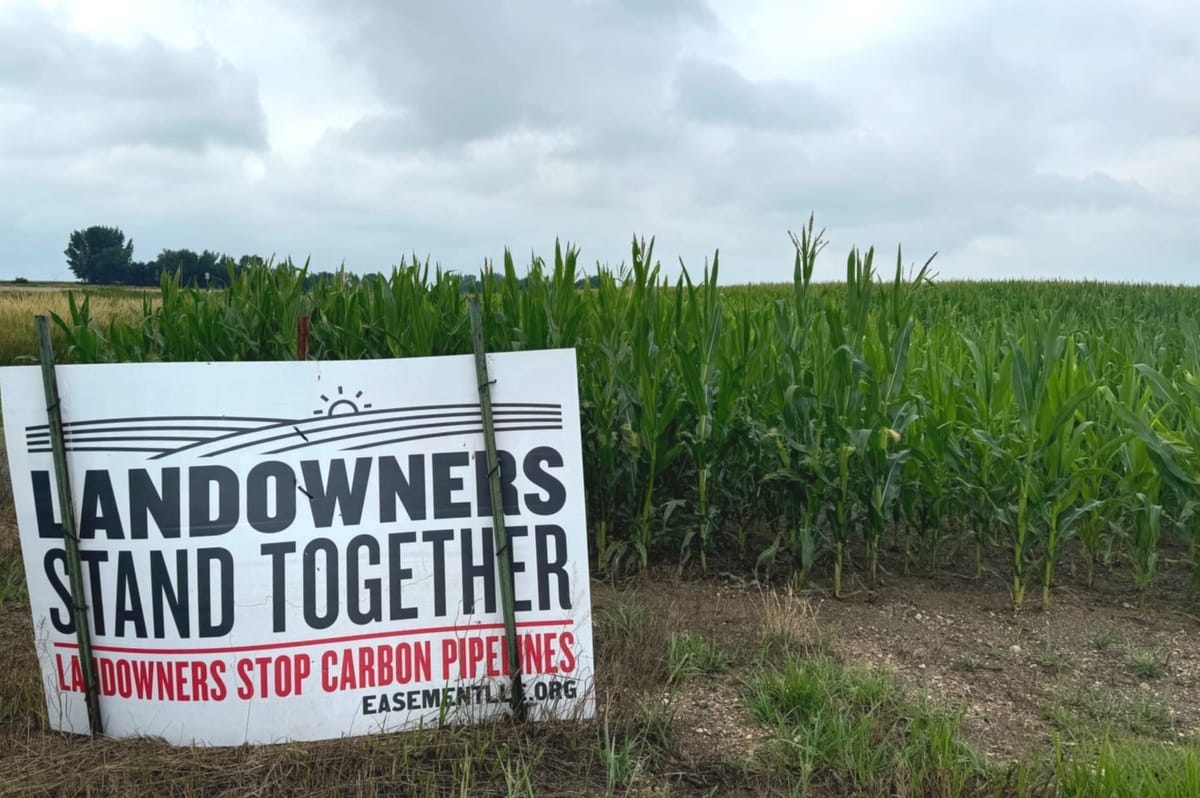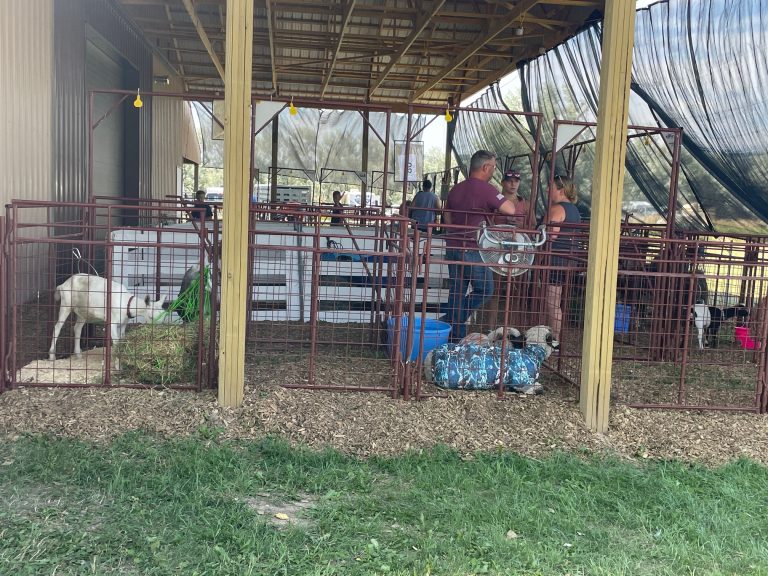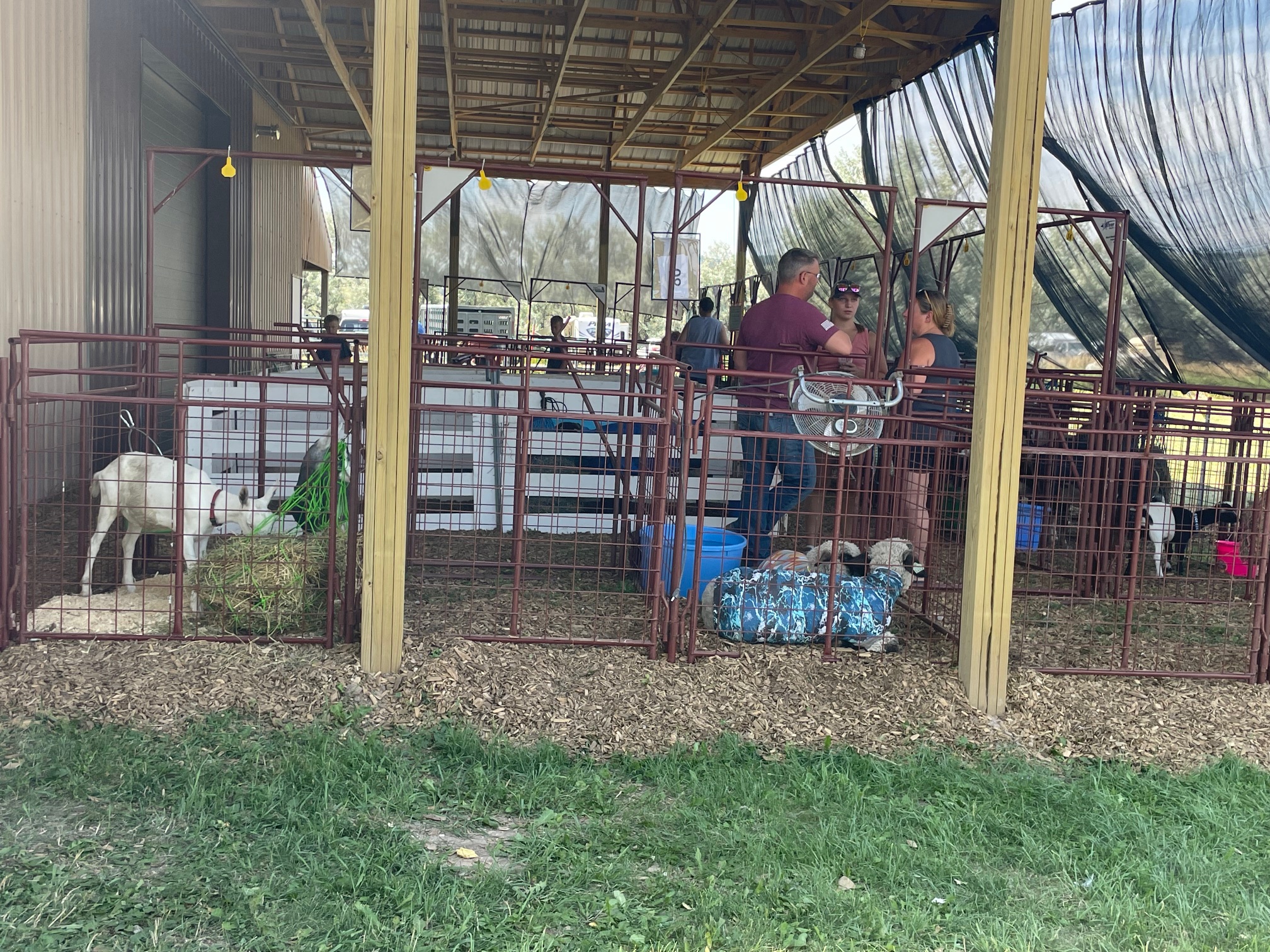WESSINGTON SPRINGS, SD – Fair prices. Is that too much to ask?
More than 300 South Dakota cattle producers answered this question in unison gathering in Wessington Springs, SD for the Foothills Cattle Producers Roundup.
Cattle producers called on D.C. leadership to support fair prices through truth in labeling. “This is such an American issue, not a rural America issue, not a cattle issue, it is an American issue,” explains Brett Kenzy, a fourth-generation Gregory cattle producer. Actively involved in R-CALF, Kenzy has spent hundreds of hours calling, emailing and traveling to D.C. to advocate for country-of-origin labeling (COOL) since it was revoked in 2015.
However, during the Roundup, he left his R-CALF hat at the door. “We invited members from all cattle organizations with the goal to keep the event politically neutral. No ties to any one organization because we need to unify with one voice to fix what is going on,” explains Scott Kolousek, fifth-generation Wessington Springs cattle producer and one of the producers who helped organize the event.
“Until we all get on the same page, and all the organizations start fighting the same fight, we aren’t going to make it better for producers,” adds Wade Christensen, another event organizer and co-owner of Kimball Livestock Exchange.
In October, Kimball Livestock Exchange LLC sponsored a bus to transport more than 40 South Dakota producers to Omaha where more than 350 cattle producers from across the region united to rally for fair prices.
“Cattle producers are fed up with packer concentration and the unfair ability to market their cattle,” Christensen says.
Prices have been on a steady decline, falling by nearly 60 percent, since COOL was repealed in 2015. Prices are so low, that after feed costs, veterinary bills and breeding fees are paid, cattle producers are lucky to break even. Those who do make a profit, can’t contribute much to their family’s living expenses, explains Philip Wipf, 57, a Wessington Springs cow/calf producer. “For the last four years, the margins have gotten tighter and tighter, to the point where there is no margin left. If it wasn’t for off-farm income, we wouldn’t have enough.”
In 2018, after all the cattle expenses were paid, Wipf was only able to contribute $10,000 to help cover his family’s groceries, utilities, insurance and other bills. When all is said and done for 2019, he’s not sure he will even be able to do that.
Unfortunately, Wipf’s situation is not unique. Current cattle markets put all cattle producers in a similar category of barely scraping by or going backward financially. The solution, many believe, comes down to holding packers accountable to label meat they process truthfully.
“COOL would prevent packers from mislabeling meat. Now, when you go to the grocery store, it’s all labeled ‘Product of the USA.’ Packers can bring in meat from other countries, like Mexico and Brazil and all they have to do is repackage it, and they can put that sticker on it,’” Wipf explains.
Without truth in labeling, packers are also able to blend lower quality meat from other countries with U.S. beef.
Did leadership hear what cattle producers had to say? Sen. Mike Rounds attended the Wessington Springs meeting. Below are his responses to follow up questions.
Question: Why do you think it is good use of cattle producers’ time to join together to show they want truth in labeling? And do you believe this will help positively impact policy?
Answer: If we can all agree to work together, we can impact policy. We can make sure that beef products labeled “Product of USA” actually come from cattle that were born, raised and slaughtered in the United States.
American beef—especially South Dakota beef—is the highest quality in the world. Because of its high quality and superior taste, many families specifically seek out U.S. beef when they’re shopping at the grocery store.
The current loophole that allows non-U.S. beef to be labeled as a “Product of the USA” is misleading to consumers and unfair to our hardworking cattle producers.
Consumers deserve to be told the truth about the beef they are purchasing.
My U.S. Beef Integrity Act, that I introduced late last year with Sen. John Thune, is a common sense way to offer an added value to products that are actually from the U.S. Additionally, closing the labeling loophole can be done without triggering World Trade Organization (WTO) retaliation.
Question: Several cattle producers believe the Beef Integrity Act is a good start but mentioned that they believe country-of-origin labeling is the only way to get fair prices. Why is COOL not a part of the Beef Integrity Act?
Answer: First, I don’t disagree with proponents of restoring Mandatory Country-of-Origin-Labeling (MCOOL).
I only have a difference of opinion on what qualifies as a practical solution, due to World Trade Organization (WTO) rulings allowing retaliatory tariffs. Since MCOOL’s inception and repeal, the WTO had repeatedly found that MCOOL requirements in the United States are noncompliant with the United States’ WTO obligations and are discriminatory to Canadian and Mexican products. This led to the WTO authorizing Canada and Mexico—two of our top trading partners—to impose retaliatory tariffs on U.S. exports totaling approximately $1 billion.
I agree with MCOOL and would prefer that it be re-imposed, but we face difficulties implementing it again because it would trigger WTO-authorized retaliation from Mexico and Canada. For MCOOL to be reinstated legislatively, members of Congress from states that would be negatively impacted by retaliatory tariffs need to have their concerns mitigated. Without broad support from across the country, we face an uphill battle reinstating MCOOL.
Because of these challenges, I sought to offer an alternative solution that protects the integrity of our USA label, is compliant with WTO obligations and allows us to continue trading with our closest neighbors and top trading partners.
The U.S. Beef Integrity Act is a practical, common sense approach that would result in a truthful “Product of the USA” label and would protect farmers and ranchers in South Dakota and across the country from a trade war with two of our top export markets.
There is value in maintaining close relationships with our top two trading partners, Mexico and Canada. It would also provide transparency to consumers, so they know that the beef they purchase was born, fed, raised and harvested here in the United States. Today, foreign beef can be shipped to the U.S. and processed here to receive a “Product of the USA” label. That is wrong.
Listen to SDPB Audio: As part of South Dakota Public Broadcasting’s look at the future of farming and the ag industry, here is our visit with South Dakota ranchers B.J. Richter and Brett Kenzy for their take on cattle prices.












